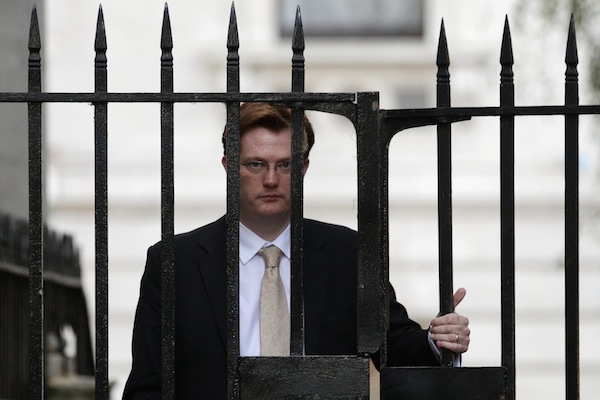‘I am proud to be part of a UK government that has re-established our country’s financial credibility. And the credit rating agencies rate the UK as triple A. The low interest rates today of 1.8 per cent are a consequence of this.’
Those were the words of Danny Alexander, chief secretary to the Treasury, back in June. He was echoing what his colleagues in the Treasury have been saying throughout this Parliament: that the UK’s credit rating is a testament to the successful economic policies of the coalition. George Osborne was quick to capitalise on the announcement by Standard & Poor’s at the end of July that the UK would maintain its triple A status.
Which is why an interview that Alexander gave this morning to the Today programme sounded rather odd. ‘The credit rating is not the be-all and end-all,’ he said. ‘What matters is have we got the right policy mix for the country to get people back into work, to support economic growth, to deal with the huge problems in our public finances and the credit agencies reflect on those things and the ratings they give are a reflection of the credibility of that mix.’
Everything Alexander is saying is entirely sensible, of course. The credit ratings agencies only reflect on the success of the government’s economic policy. And it’s not as though they give the most cast-iron verdicts anyway (remember they gave collateralised debt obligations high ratings). But given he and his colleagues have set such store by their verdicts, pointing to them as a sign that though times are tough, the UK economy is on the right course, it’s difficult to switch from saying they do matter a great deal to trying to suggest they don’t matter after all. It also suggests anxiety in the Treasury that the other ratings agencies will not give the UK the benefit of the doubt that S&P did last month.







Comments